Will AI make us all stupid? A Spiritual Reflection
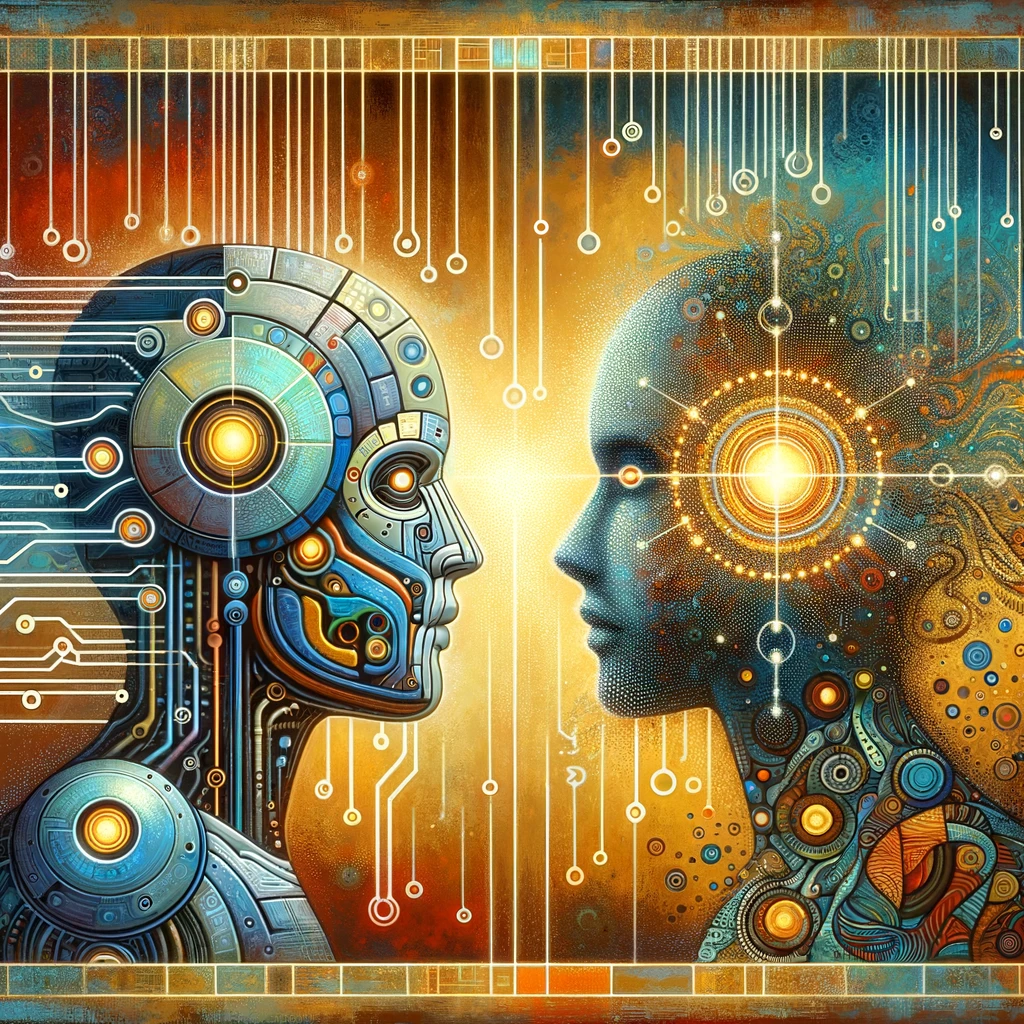
Unless you’ve been living under a rock or completely off the grid, you are probably well aware that AI has been making breathtaking leaps in the past few years, that shocked even the most tech-savviest folks.
Imagine, just a couple of years ago, the idea of machines writing poetry or creating art was the stuff of sci-fi. Now, it’s our reality.
If you’ve been paying attention to the current debate on the media, you’ll have noticed it has sparked the wildest imaginations and passionate emotional outbursts about how this will shape the future of our society
Will a dystopia as portrayed in The Matrix movie series finally come true? Are sentient machines going to take over the world and enslave us all? Or will AGI (Artificial General Intelligence) be the next step in the grand scheme of evolution? Will an evil faction use this powerful tech to wreak havoc on everyone else? Or will AI be the savior to all of human created problems? Are we going to drown in endless shallow, meaningless computer generated imagery, cyber parroted articles and fake news of a whole new dimension? As someone who has has been working in the field for many years, this development has been on my radar more than a decade – with a notion of concern and excitement likewise.
Needless to say, this article will never be long enough for me to cover all those thought-provoking topics in the depth they deserve. My goal here is not to predict the future of AI, as it has been done a zillion times. Rather I want to invite you on a journey of a more intimate kind: to find out what it really means to be human.
Many voice the concern that the spread and acceptance of AI is not only going to take all our jobs, but also will make us more stupid, more simple minded. That there will be no more motivation to do or learn anything.
With ChatGPT and other so called large language models, AI became good enough to be used by students to do their homework and for creators to assist in their writing, generate stunning images, trippy videos and more recently even cinematic movie shots.1 All with the flick of a finger on the keyboard.
We don’t need to extrapolate this startling development very far into the future, to see where it might lead.
The programming skills of large language models such as ChatGPT has reached that of a mid-level software engineer.2 Image generation like Stable Diffusion, Midjourney or DALL-E has surpassed high-end photography and photorealistic render engines such as Unreal Engine or Octane.
Nobody expected, that machines are going to take over the jobs of the creatives and knowledge workers first. Wasn’t it the promise, that machines will take care of the tedious manual labor, so we can focus on the arts?
What is left for us as humanity, when almost everything can be done better by AI? What is the point of learning to play a musical instrument when one can generate and play a whole, novel symphony by a tap on their screen?
Why should we learn about anatomy and medicine, when AI has more knowledge and experience about a medical condition than all physicians combined?
Why should we pursue to learn the skills of any fine arts, when we can generate a stunning painting with just a few words typed into our smartphone?
It feels like we’re standing on the abyss towards a deep crisis of meaning.
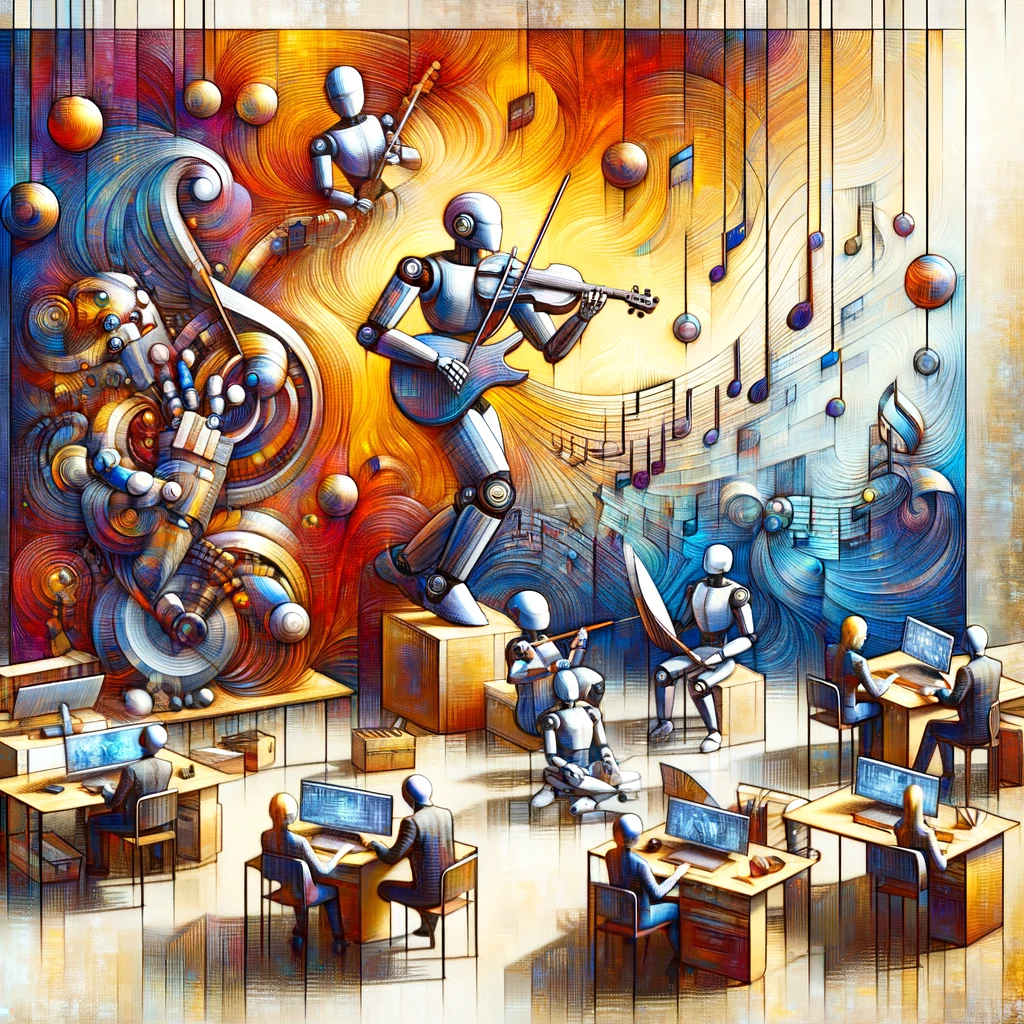
Those are all valid concerns. I stated a quite similar concern about 15 years ago when smartphones became ubiquitous — that we will not be able to remember anything anymore as we could always look it up. What would be the point of reading a book, memorize the capitals of the world’s countries or the names of the actors of our favorite movies?
To some degree that has become a reality. The “I don’t know, let me google it” has become a second nature to us. The verb “to google” was already added to the dictionary in the year 2006.3 Further more we’ve become the most distracted society that has ever been alive. With ever decreasing attention span, numerous devices and apps constantly hijacking our primal dopamine system, focus has become the real superpower of the digital era.
The blissful power of curiosity
So definitely something was lost. But what was won? What good things can we take from this development?
When I was in school, I hated the idea to memorize boring facts just for the sake of regurgitating them at the next exam. I thrilled at subjects like math and physics where one just had to learn and understand higher principles and could deduct the rest by using logical reasoning and calculus. I had difficulty with latin, history and biology where one had to cram vocabularies, memorize the dates and names of historical events and figures or drill the complex steps of the Krebs cycle. Yet, since I was a little child was obsessed with acquiring new knowledge. Stuff I was actually interested in – I studied books about plants, chemistry, physics and technology that I found at my grandparents’ library. I was captivated by going on long walks with my grandpas and would soak up their explanations about our solar system, how radios, microwaves or television tubes work or the functioning of the electrical grid – all with the wide open eyes of a curious child. I almost blew up my home while setting up dangerous experiments – to the dismay of my mom. Once I found immense joy in memorizing the complex and beautiful chemical structure of the Chlorophyll molecule, to the perplexity of my teacher.
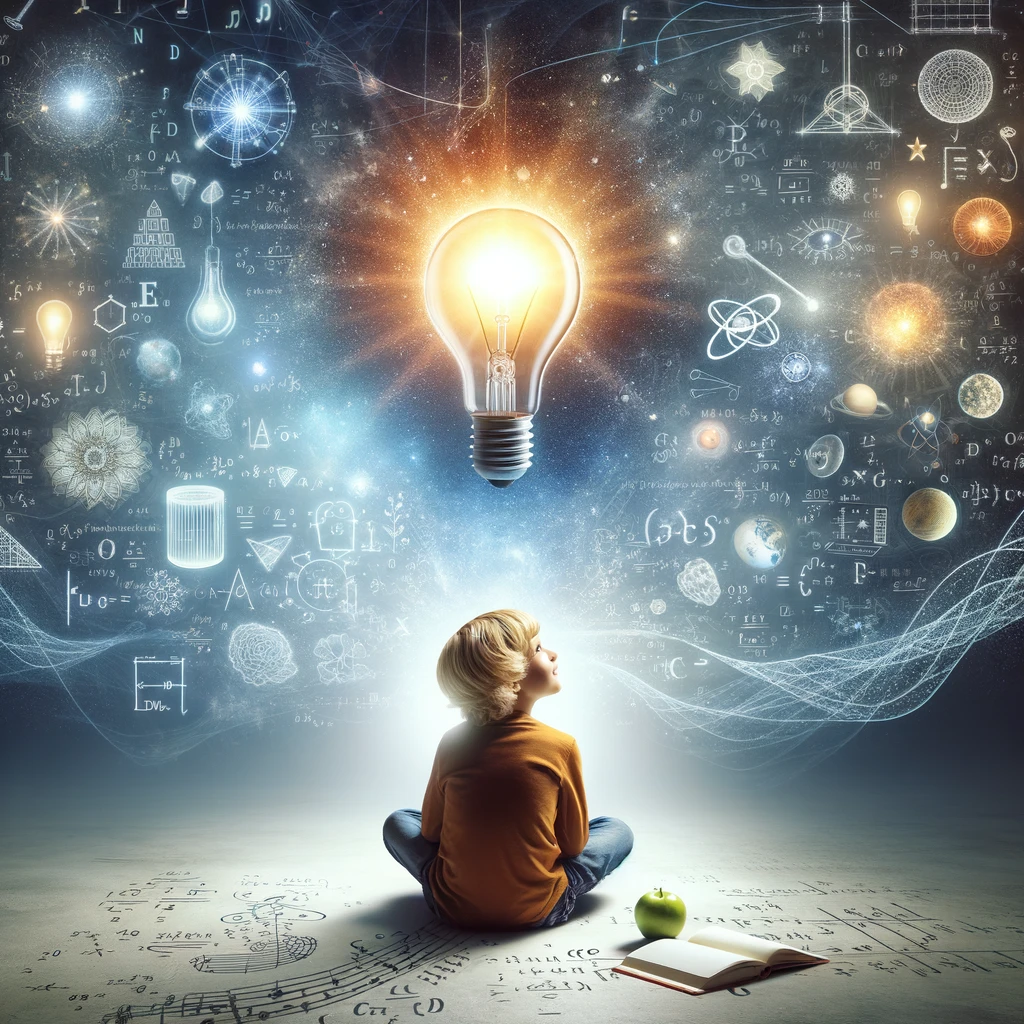
The arrival of the internet was a huge salvation for me. I could finally learn everything I ever wanted. For hours I’d sit in front of the computer and read about bleeding edge scientific discoveries, advanced chemical formulas, advanced math or philosophical discourses. I taught myself how to code, landing my first programmer job at age 15 at the renowned Fraunhofer research institute.
Admittedly, most of the things I’ve learned as a bright kid, I’ve probably forgotten in my numbing adult years. Though one thing stayed with me: The insatiable thirst for knowledge and novelty. The curiosity to discover life. The content has been changing, but the essence remained the same.
Reflecting on my own development and looking at the progress of humanity over the past 10.000 years, its hard not to see the obvious: There seems to be an inherent drive in humans to seek out new knowledge, to make novel discoveries, solve problems, develop innovative technologies, to create original art, to find new ways of living and relating. We don’t have to focus on just humanity. When looking at nature or the cosmos at large, we’ll find the same principle, everywhere: Matter formed from fundamental particles, to protons and neutrons, to atoms, stars and galaxies, to planets. Life developed from a primordial soup of amino acids, to single cell organisms, to multi-cell organisms, to complex fungi and plants, to sophisticated animals.
There is unmistakably an universal principle, that forms ever increasing complexity – at least within the known Cosmos. And its ultimately this drive within us, that make us to progress, in any area of life: art, technology, society, philosophy, spirituality, ourselves. We want to expand, pass on and transcend our ideas. Biologically and metaphysically. Simple because of this: it feels good.
How will change AI the way we’re creating?
So how will AI change the way we are learning, creating and relating? If you’ve followed the discourse on social media (the town squares of the digital era) on this topic without going insane: kudos to you. People are viciously attacking each other over what they belief constitutes art, their various conceptions of intellectual property and the theft thereof, the role of big tech and what means to be an authentic artist. In summary, humanity playing out it’s drama as it has been the case since the first humans walked on this planet – and this definitely has been more pronounced with every novel technology and paradigm shift coming along.
I won’t go too much into the details of what I think are the risks and benefits of AI and its use in creating. I’ll leave this open to future articles. As with everything, I belief there is some truth to all sides of the arguments. But to learn from it, we need to zoom out and see it from a higher perspective.
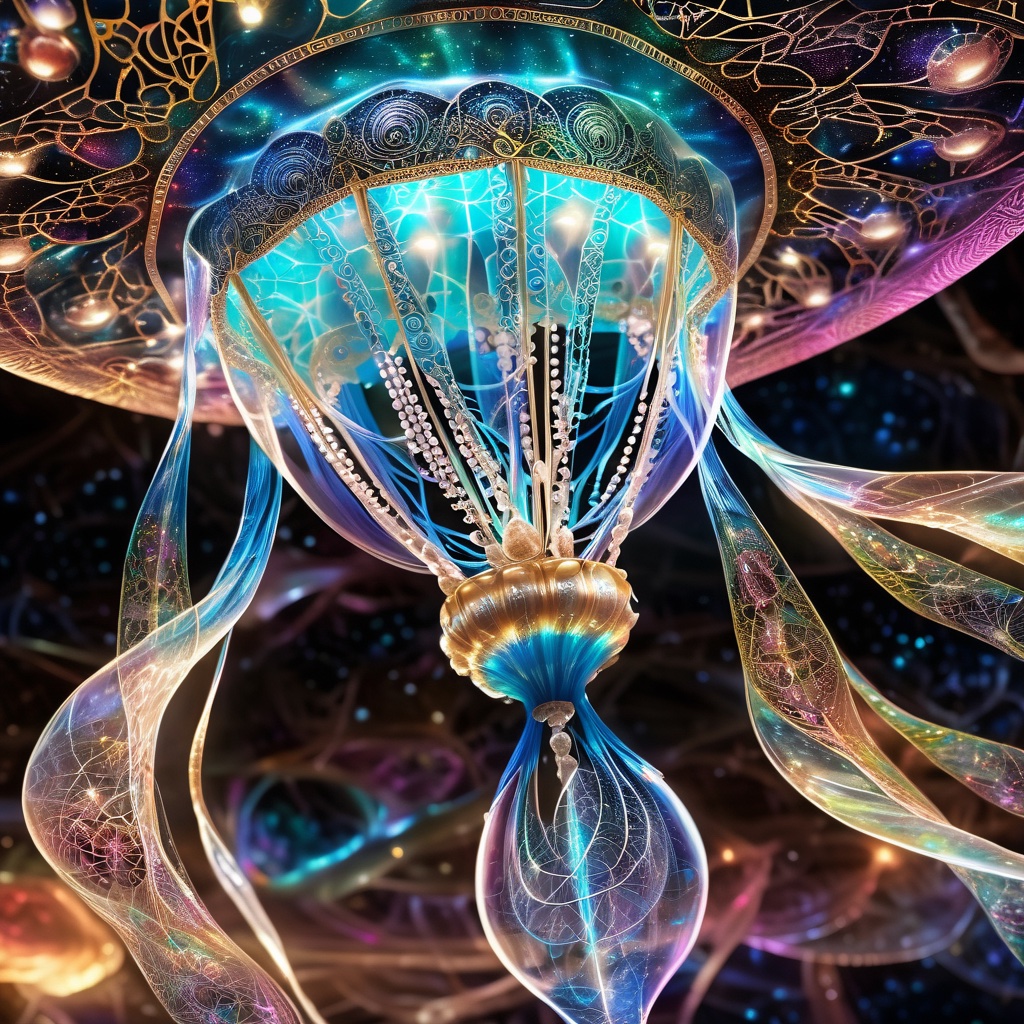
My personal experience with these tools have been mostly shaped by my innate curiosity. Since the first version of Stable Diffusion and later ChatGPT came out, I’ve been playing with them extensively. Finding out what I can do with it, explore my own imagination and how I could integrate it in my creative workflow. It’s perks and limitations, as well as it’s ever increasing capabilities. I loved to see how a pioneering community of artists and coders emerged to create wonderful open source tools so everyone could experiment with it in countless innovative ways at zero costs.4 My complaints were mostly: the tedious process to set up to run the models on cloud servers (they usually require a lot of compute power, I don’t have locally), the lack of control over the outcome (though this improved a quite a bit through new techniques like ControlNet 5), as well as long waiting times (I sometimes had to generate hundreds of images or videos taking hours, before finally getting the result). It was a fun endeavor and I loved especially to integrate it with my other artistic work, which is mostly code generated art and drawings. Though from a strictly experiential point of view though, I prefer the latter as it stimulates my mind more through the complex math involved or the deep sense of flow.6 Which brings me to my next insight.
My experience with ChatGPT has been mostly positive: While still having it’s issues, being slow and its textual output more on the over polished side – I love it as an assistant in every day tasks: synthesizing together heaps of information, analyze my ideas and writing, generating code, help me with comprehending complex topics and more.
What has been forgotten in the whole AI debate
What often seems to be forgotten in the whole debate of AI in the context of creating is exactly this: The subjective, interior dimension of the human experience. The fun of exploring our imaginaton and following our curiosity. Creating, iterating, transcending ideas. The very thing, that make us, in fact, human. Why do we learn or create in the first place, independent of which medium or tool we use? Why do we do any thing, outside of our duties?
A machine may not have the euphoric Eureka moment we do, when making a groundbreaking scientific discovery or experience the kind of excitement when completing a huge sculpture, that we’ve been working on for weeks. A machine may not be sunken in the ecstasy melodies and rhythms when playing a musical instrument. It may not experience the earthy smell after a summer rain or that of a freshly brewed coffee. A machine may not experience the alluring passion of a romantic adventure, the euphoria of reaching the peak of a mountain and seeing the stunning view, the intoxicating feeling of falling in love, the elated bliss we sense when being immersed in the pristine beauty of nature or the joy of the clicking moment when getting the punchline of a good story. It may not encounter the electrifying sensation when subtly touching the hand of our loved one.
It is exactly this joy of being deeply engaged with the world that motivates us. That makes us feel alive. Its this drive to make us develop novel ideas, learn new skills, have sex, create an interesting piece of art, or just play a fun game with friends.
Admittedly, a huge part of society seems to be on a mindless autopilot – spending countless hours in unfulfilling work and traffic jams, scrolling indefinitely on social media, having pointless arguments with their significant others or fighting over which political or religious ideology is better than another. We’d say, they are not connected with themselves, or they are trying to escape reality.
This is a descriptive metaphor, but not entirely true either: what else should we be connected with? There is only one reality. If its on our phone, in our head or a field of flowers we’re walking through. There is no escaping, because there is nowhere else to go. What we really mean, is this: we are not paying attention, that we are, in fact in contact with reality at all times. But what we take for true reality, is actually not it. It is just a thought, just an idea. And we identify with these ideas of reality and think we have to get somewhere else. We feel separated, lost.
But, when we’re really paying close attention to this raw, unfiltered, reality that is present with us at all times, we’ll ultimately find the joy and salvation, we were looking for. A sense of joy or love, that is of an entire different quality as the short-term pleasure we get from eating sweets or scrolling through instagram. It a peaceful, humble joy that comes from relaxing into the open space of our true nature. We’re realizing, that we are in fact one with reality – in the very literal sense of the word. There is no separation of it. There is just this. Only experience. Only this present moment. Whether it presents itself as a past memory, a troubling thought, the buzzing city streets, the beautiful music we’re listening to, or the tingling sensations when speaking in front of a large audience. All the longings and desires to find reality, is the very nature of reality itself. Why do we desire love or being loved, if this is not the very essence everything is made of?
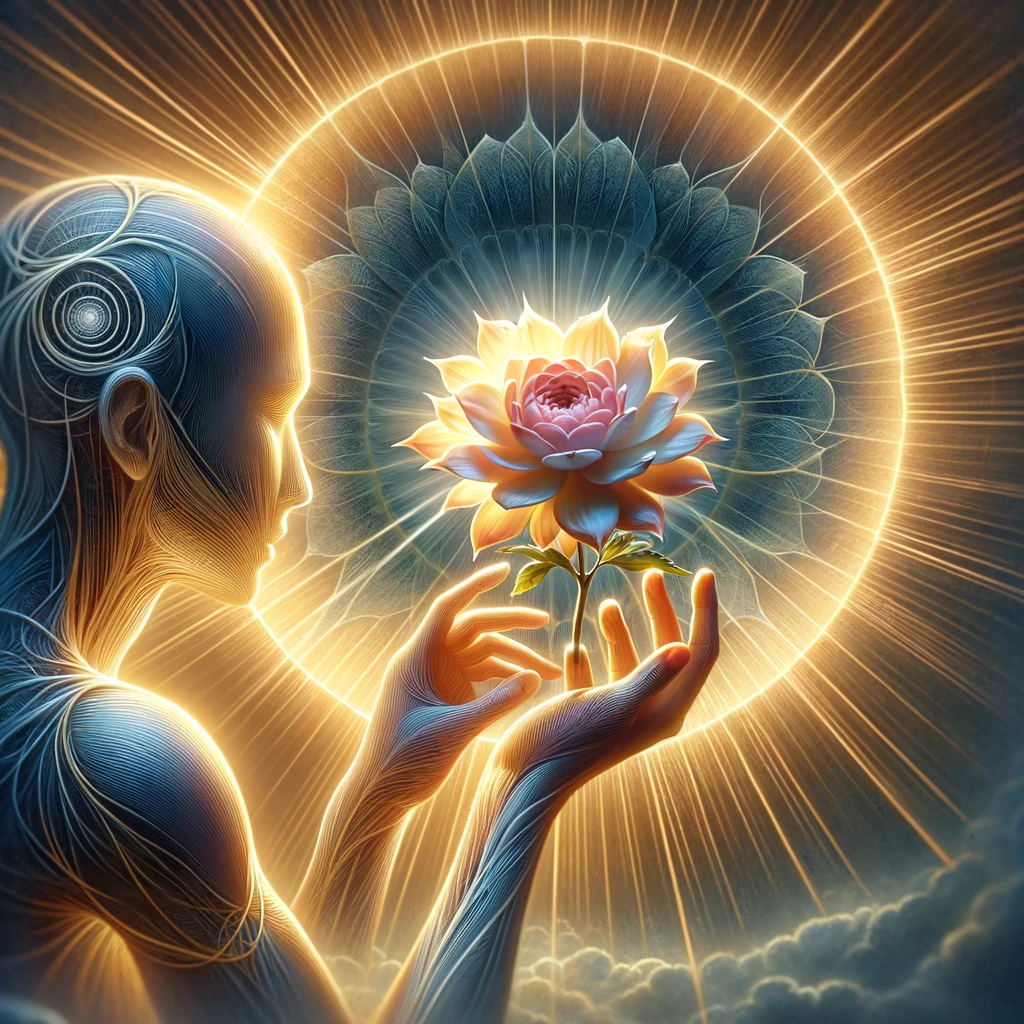
And everyone who wakes up to their true nature sees, that there is a natural flow to life. Life want’s to express itself, in myriad ways. It is this life force, that drives us to pursue creative expression, engage in relationships with other beings – and eventually do anything we’re doing. Through paying close attention, getting in close communion with this true reality, we increase the richness of our life experience. And this richness is growing in alignment with our capacity to integrate more of reality into this unified experience. At some point, we will regard even commonly “negative” labelled experiences, such as pain or sadness as profound and beautiful. And herein lies the meaning of all life.
We create music, so we can experience us as rhythms and harmonies, we paint, so we can experience us as colors and patterns, we have deep conversations and sex, so we can experience us as the other, mentally and physically, we tell stories, so we can experience us as the characters of the stories (even if that character is us), we attract drama, so we can experience us in excitement.
An alternative vision to AI doomsday scenarios
Now, coming back to the topic of AI: the question of whether AI will render us stupid or replace us becomes utterly ridiculous, in the face of recognizing our own true nature. It may replace our jobs, it may replace our governments, it may change the way we are communicating, it may disrupt society at large. And many of those areas pose serious, challenging questions, which we will have to answer in the times to come.
But it raises one rather existential question about our very human nature: What does it mean to be human in a very pure sense, when there is no more essential, economic need for us to do anything? I believe it is precisely this existential threat towards our self-imposed identifications that underlies the strong emotions in the current debate.
The answer is clearly: No, AI will never be able to replace our own subjective experience. It can never replace our loving essence. If the machines became poets and painters, it may be the result of us having become more like machines, serving the algorithms. Thus, we must take on the responsibility of surrendering to our true nature and let our loving essence shine through. We must rediscover the innate joy, that lies in the intimacy of every moment of our experience. We must allow ourselves to follow our curiosity and deeply engage with the things that inspire us. Only then we can be in contact with our full, innate capacity: a rich experience and an empowered sense of agency.
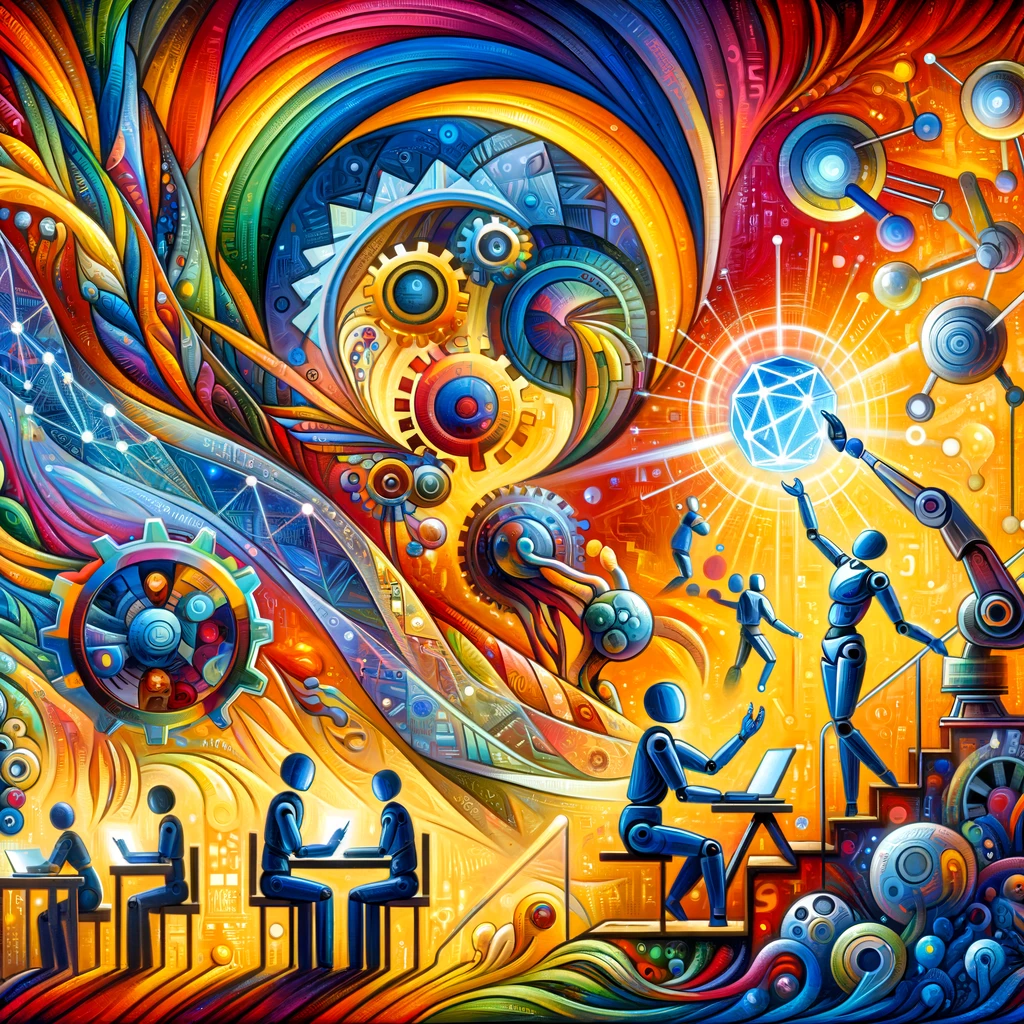
Looking at it this way, AI and technology in general may become a wonderful companion to assist us, in realizing our full human potential. It may be our tutor, our personal assistant and our collaborator to solve small and big problems. It may take over the hard or boring tasks like accounting, generating code, or creating an inspiring image for our blog article. So we can become the master architects of our own imagination. Shorten the gap between idea and execution.
It can help us to learn new complex topics in light speed, improve communication across different cultures and worldviews, help us to understand different perspective. It can help us to explore yet unknown aesthetic realms and get in touch with our imagination. It may even assist us to cope with serious global challenges like global warming, sociopolitical conflicts and energy supply.
In short, it may open up the doors to focus on and deepen our human experience: creating, relating, learning, exploring. We will never run short of new ideas, as our imaginary potential is infinite as we surrender to it. But we have to take that door and not get lost in yet another rat race to enhance our productivity in order to chase the imaginary goal of future happiness. Everything we ever wanted is right here, in this present moment.
We may still play this wonderful, dramatic game that life is. But we will take it less serious and be more humble. Be more at service to others and our own wellbeing. We will be less inclined to chase unfulfilling careers and empty status symbols. And will pursue more of the things that truly make us feel alive. As life is not about getting more things done, in order to get more things done. Life is about doing the things that really inspire us and enjoying each moment of it, effortlessly: May it be creating art, dancing, solving problems, helping our fellow humans, learning new skills or contemplating the cosmos. We will rediscover and deepen our curiosity to explore the endless mysteries and beauty of life.7
Now, do I believe AI can or will have a conscious experience of its own? We don’t know and we may never do. It is yet another mystery. If you get a glimpse in the true nature of consciousness, you will see it’s less about the answers than it is about the questions. 8
This was my very first article of its kind. All images created by AI, all text created by human hand and heart. I’m planing to write more on this and related topics. Sign up to my newsletter to stay tuned!
References
-
https://courses.cfte.education/chatgpt-outperforms-4m-programmers/ ↩︎
-
https://www.wired.com/story/just-google-it-a-short-history-of-a-newfound-verb/ ↩︎
-
https://github.com/comfyanonymous/ComfyUI https://deforum.github.io/ https://github.com/AUTOMATIC1111/stable-diffusion-webui ↩︎
-
For those not knowing the difference: AI images and videos are generated mostly through instructions in english language so called prompts. Code art is generated through complex custom computer programs that usually require experience in programming and complex math. ↩︎